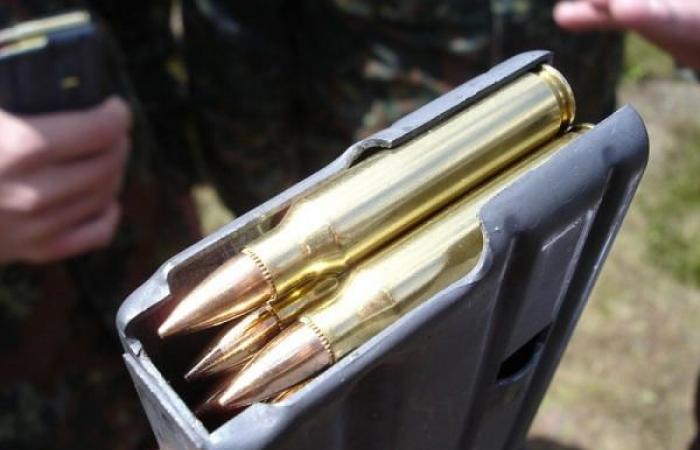
In 2017, Jean-Yves Le Drian, then Minister of Defense, overrode the reluctance of the General Directorate of Armaments [DGA] by kicking off a project aimed at recreating a French capacity for producing small caliber ammunition, this sector having disappeared with the closure of the Giat Industries establishment in Le Mans at the end of the 1990s.
This decision was partly inspired by a parliamentary report which, published two years earlier, had asked whether France could be sure of being supplied with small caliber ammunition in the event of a major crisis. Believing that there was no guarantee on this subject, its authors recommended relocating such an industrial sector, explaining that this would require an investment of 100 million euros, with profitability having to be ensured “from an annual production of 60 million cartridges provided that a constant level of orders is ensured during the first five years.
Described at the time as having to be an “act of national sovereignty”, Mr. Le Drian's project was based on a set-up associating NobelSport, a French specialist in cartridges for hunting and sports shooting, with Thales [via sa filiale TDA Armement] and in Manurhin, manufacturer of cartridge-making machines.
However, after the spring 2017 elections, and even though a protocol had been signed by the stakeholders concerned, this project was abandoned, with the same arguments that had been put forward to oppose its implementation. [viabilité économique non garantie, possibilité de s’approvisionner à l’étranger, complications juridiques au niveau européen, etc.].
Except that the covid-19 crisis and the war in Ukraine have changed the situation, as evidenced by the difficulties of the Ministry of the Interior in obtaining supplies of 9 mm cartridges. Also, in December 2023, the Minister of the Armed Forces, Sébastien Lecornu, announced that he had commissioned a study from the DGA in order to “document the costs of recreating a small caliber ammunition sector.
Finally, less than six months later, France signed a letter of intent with Belgium with a view to establishing industrial cooperation on small caliber ammunition.
“This sector having disappeared in France, the objective is to recreate it by relying on Belgian skills. This new component must include the creation of an ammunition assembly line in France and the purchase of ammunition directly from the Belgian industry. Industrialists are working at this stage on questions of financing the investment, with the project due to start in the coming months,” explained the Ministry of the Armed Forces.
Before the senators of the Foreign Affairs and Defense Committee last month, Mr. Lecornu briefly returned to this issue. “As far as small caliber ammunition is concerned, things are progressing well. The economic model must include the Ministry of the Interior and perhaps even recreational shooting: we need outlets to avoid the situation that led to the disappearance of the sector in the 2000s,” he explained.
This cooperation between France and Belgium will undoubtedly materialize soon, taking up the intuition that Mr. Le Drian had almost eight years ago. Indeed, this November 15, the FN Browning group [dont FN Herstal est une filiale] has confirmed that it has just entered into “exclusive negotiations” with the French gunmaker Sofisport, one of the main producers of hunting and sports shooting ammunition [via ses filiales Nobel Sport, Cheddite, Maxam, Sofiam, etc.] with a view to its redemption.
“Browning Group, whose subsidiaries include, among others, FN Herstal and Browning, announces its entry into exclusive negotiations for the acquisition of the French group Sofisport, world leader in the manufacturing of hunting and sports shooting cartridges and their components,” said in fact announced the Belgian industrialist.
And added: “The merger project is based on strong industrial, geographical and cultural complementarity between Sofisport, a French company with family shareholders, and FN Browning Group, owned by the Walloon Region, a component of the Belgian federal State” .
The objective of this operation is to constitute a “world-wide European system, fully integrated in the field of small arms and munitions”, the complementarity of the two groups should enable them to strengthen “their competitive positioning, their performance and their development capacities, with favorable effects for maintaining activity and employment.
According to the Belgian economic newspaper L'Écho, this merger between FN Browning and Sofisport would be likely to favor the “creation of a new production line” in France, the Walloon industrialist having planned to install additional capacities “for the manufacture of small caliber ammunition in Herstal and Zutendaal, in collaboration with the Belgian Defense.
In any case, Franco-Belgian cooperation in the field of land weapons continues to grow. This was initiated by the strategic partnership CaMo [Capacité Motorisée] which aims to make the land forces of the two countries perfectly interoperable thanks to the French SCORPION program. Then, it continued with the takeover of Arquus by the John Cokerill group last July.
“We are helping Belgium on CaMo and it is helping us to rebuild a sector for small calibers. Interesting industrial mergers are taking place, notably between Arquus and Cockerill. This is a valuable partnership,” summarized Mr. Lecornu during his last hearing in the Senate.





